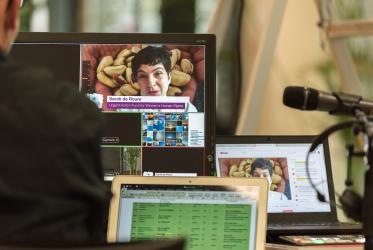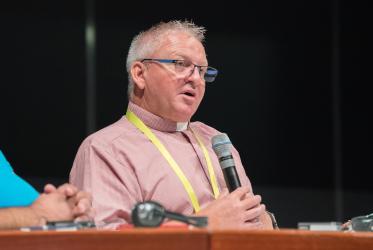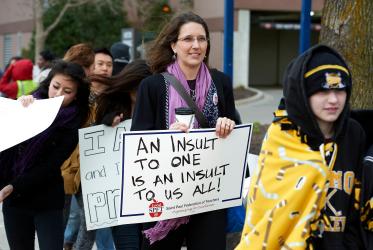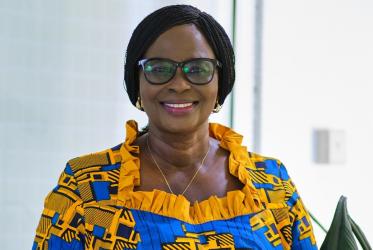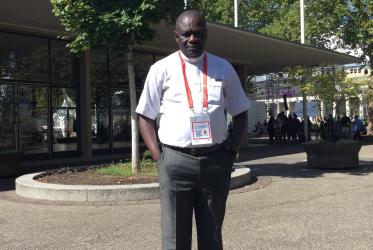Displaying 1 - 20 of 38
Churches in Africa agree on guidelines for disability inclusion
19 December 2023
WCC webinar explores decolonizing beauty
11 December 2023
Young Black Europeans: “common witness has an open ear”
30 November 2023
Migrants in Argentina find listening ears and open hearts
04 November 2022
Assembly workshop looked toward ending AIDS epidemic by 2030
19 September 2022
Promoting human dignity through art
06 September 2022
Indigenous women struggle for identity in Asia and beyond
05 September 2022
Women with disabilities want to belong in churches
31 August 2022







